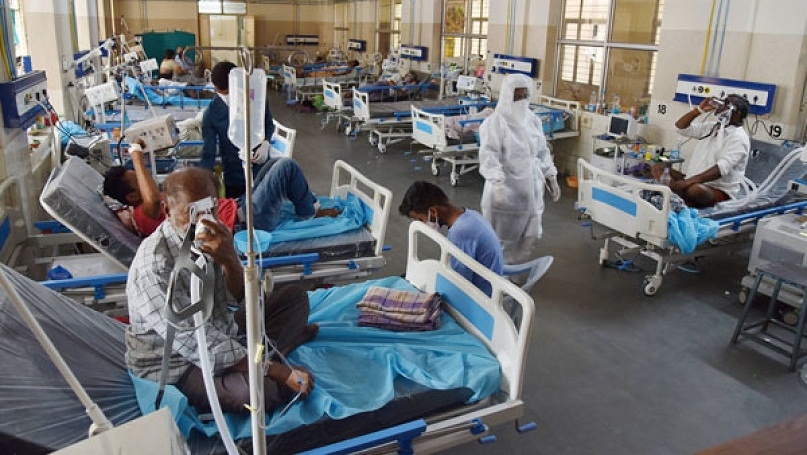Harrowing hospital memories hurdle road to recovery for COVID-19 patients
25 May 2021 09:40:40

By Radhika Sharma :
NEW DELHI,
CROWDED wards with scarcely a doctor or an attendant in sight, patients holding on to each other to go to washrooms so filthy they gagged and, most agonising, people around them dying. For COVID patients back now home, harrowing images from their hospital stay are the hurdles on their road to recovery. Over a year after the pandemic began and deeper into the second, deadlier wave, many of those who have been to COVID hell and back are unable to shake off the memories of their days in hospitals, leading to worries about PTSD (post-traumatic stress disorder) and other anxiety related problems, including insomnia. It’s a “numbing experience” for many COVID-19 survivors who come out from hospital, observed Dr Samir Parikh, Director, Department of Mental Health and Behavioural Sciences, Fortis Healthcare, Gurgaon.
Their days in hospital are seared into the memories of COVID patients who seem to be healing – but maybe only from the outside. “Hardly any doctor attended to us for the first two days. There were six of us -- women and men -- in the same COVID-19 ward. We had to throw empty plastic bottles out of the door to catch the staff’s attention. I watched at least three people die on the bed right across from mine,” a Delhi homemaker told PTI, requesting anonymity. The 57-year-old, who is slowly regaining her strength, spent five days at a Government hospital in the city. Cases were spiking in the national capital and hospital beds were hard to come by when she was taken ill last month. With oxygen saturation levels falling, high fever and deteriorating HRCT chest values, she needed urgent hospitalisation and the family managed that with some difficulty. She recalled her hospital stay with a shudder.
“There was no one to take us to the washroom and we, the patients, would hold each other’s hands and go to that very unhygienic toilet, which was down the hall and unisex.” The attendants, overburdened, exhausted and frustrated themselves, were often unhelpful. “When the old man right across from my bed would take off his oxygen mask repeatedly, the ward boy would shout at him and say ‘Uncle ji, this won’t affect us. So you can keep doing this’,” she recalled. Almost a month later, she still wonders what happened to the woman who was on the bed next to hers. As cases continue to rise and hospitals stay overburdened, sociologist Sanjay Srivastava said, this is a pandemic that seems to have no answers, causing a general rise in “social anxiety, distrust and psychological instability”.
There has also been a realisation about the fragile nature of what in India was always believed to be a strong idea, the state, the London-based academic added. “There is also a feeling of extreme psychological distress due to the seemingly mysterious nature of the virus, a mystery that none of the usual authorities -- doctors, hospitals, the Government -- has any answers for,” Srivastava told PTI. The stories of continuing patient distress are many. Several patients said they couldn’t bathe for days in hospital because there was no water or use toilets that were clogged and dirty.